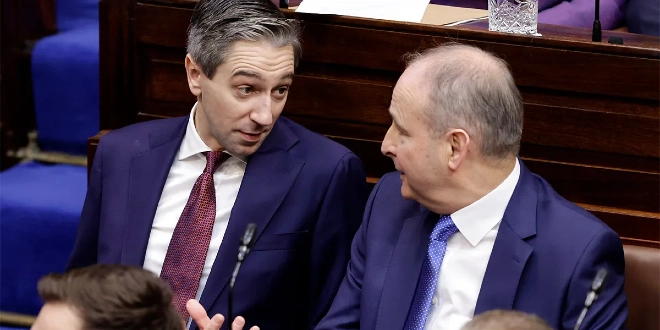The government is expected to push forward its plan to allow Michael Lowry’s Regional Independent group to operate as a “hybrid” technical group spanning both the government and opposition. The proposal is set to be presented at the Dáil reform committee meeting on Tuesday, despite strong opposition from rival parties.
During a five-hour meeting on Friday, no resolution was reached regarding the ongoing dispute over Dáil speaking time. Sources indicate that when the committee reconvenes on Tuesday at noon, just one day before the Dáil resumes, government representatives are likely to push for a vote in favor of their plan. Given the government’s majority on the committee, the proposal is expected to pass.
However, opposition TDs have strongly warned against the move, stating that if the plan is forced through, they will likely disrupt Dáil proceedings on Wednesday.
Ceann Comhairle Verona Murphy released a statement emphasizing the importance of consensus in democratic decision-making. She expressed disappointment that no agreement had been reached but reaffirmed her commitment to pursuing all possible solutions. The committee has agreed to reconvene after the weekend to continue discussions.
Following the meeting, opposition leaders—including Sinn Féin’s Mary Lou McDonald, the Social Democrats’ acting leader Cian O’Callaghan, Independent Ireland’s Michael Collins, Labour leader Ivana Bacik, and Richard Boyd Barrett of Solidarity-People Before Profit—sent a letter to Taoiseach Micheál Martin expressing strong opposition to the government’s plan.
The letter argues that designating the Regional Independents as a “hybrid” group undermines parliamentary democracy and unfairly benefits those who align with the government. It asserts that the group had already negotiated a deal with Fianna Fáil and Fine Gael to support Martin’s election as Taoiseach, making them government-aligned rather than neutral.
The opposition has made it clear that they will only accept the formation of a new technical group involving Michael Lowry if it is officially recognized as part of the government, with speaking time drawn from Fianna Fáil and Fine Gael, and without access to Dáil leaders’ questions or priority questions. In contrast, the government has proposed a “hybrid” arrangement that would allow the group additional speaking privileges without reducing the time allotted to Fianna Fáil and Fine Gael.
Despite mediation efforts by Ms. Murphy, both sides rejected each other’s proposals, leaving the issue unresolved.
Opposition TDs, including representatives from Sinn Féin, the Social Democrats, Solidarity-PBP, and Independent Ireland, have labeled the government’s approach as unacceptable. Some have called for an urgent meeting of party leaders and warned of potential disruptions in the Dáil next week.
Solidarity-PBP TD Paul Murphy expressed frustration over the lack of progress, describing the situation as having “gone backwards” rather than moving toward a solution. Social Democrats acting leader Cian O’Callaghan called on the Taoiseach and Tánaiste to sever ties with Michael Lowry, while Sinn Féin’s Padraig MacLochlainn questioned why one TD had so much influence over government decisions. Independent Ireland’s Michael Collins emphasized the need for common sense, calling the situation a “national crisis.”
In response, Fianna Fáil has sought legal advice from Senior Counsel Michael Cush, who argues that Independent TDs who are not ministers are entitled to opposition speaking time. His opinion supports Ms. Murphy’s original decision to grant speaking rights to the Regional Independents, which was firmly rejected by opposition parties.
With tensions running high and no agreement in sight, Tuesday’s committee meeting is expected to be a critical moment in determining how Dáil speaking rights will be allocated moving forward.
 The Daily Star Ireland
The Daily Star Ireland

